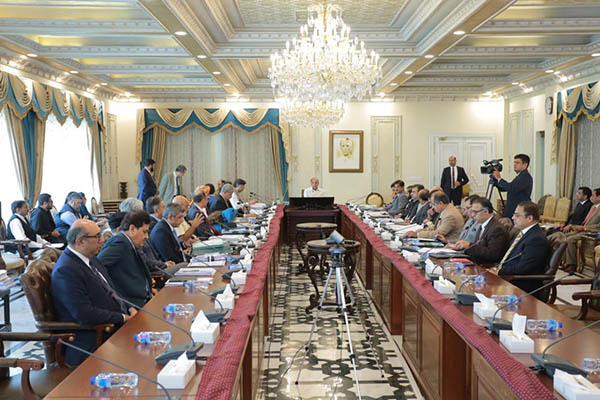
Photo courtesy PID
The National Economic Council (NEC), Pakistan’s highest economic decision-making body, on Wednesday decided to enforce the closure of commercial markets nationwide at 8:30 p.m. in a bid to conserve energy and reduce the country’s import bill.
Presided over by Prime Minister Shehbaz Sharif, the NEC meeting was attended by three chief ministers—Khyber-Pakhtunkhwa was represented by chief secretary Shehzad Khan—as well as other members of the Council, which was reconstituted by President Arif Alvi just a day earlier.
According to a statement issued after the meeting, the four provinces agreed, in principle, to a proposal to enforce the closure of markets at 8:30 p.m. in a bid to curb the prevailing energy crisis. However, it added, they had sought two days to hold consultations with traders’ association of their provinces before implementing the measure. It said that the chief ministers had also supported the federal cabinet’s decisions to tackle the energy crisis, adding they would fully cooperate with their implementation.
In a press conference after the NEC meeting, Power Minister Khurrum Dastgir-Khan said that early closure of markets and work-from-home arrangements could help save electricity. “The electricity being produced in the country is 22,000MW and the requirement is 26,000MW,” he said, adding that the government had decided to provide uninterrupted power to the industrial sector to boost exports and was working to curb load-shedding for residential consumers.
Unsurprisingly, the All Pakistan Traders Association swiftly rejected the government’s proposal, claiming this was creating “unnecessary” hurdles to their operations. APTA President Ajmal Baloch said the government should conserve energy by cutting off “free” power to other sectors. He claimed people avoided going to markets during the day in the summers, preferring to go out in the evening. “This is not a practical proposal,” he added.
GDP growth targets
In its meeting, the NEC set next year’s economic growth rate target at five percent with the participants saying they would utilize all possible efforts to achieve 6 percent growth. It also set Rs. 2.184 trillion for public sector investment, roughly the same as the current year’s allocation of Rs. 2.135 trillion.
According to a statement issued after the meeting, the government plans to curtail total federal expenditure to Rs. 550 billion. It said the provinces had been directed to formulate their annual development plans, valued at Rs. 1.384 trillion in aggregate, against the Rs. 1.235 trillion allocated for this year.
The NEC also decided to spend 60 percent of the federal public sector development program on ongoing development projects, with the remaining 40 percent for new projects to help accommodate a maximum number of projects.
